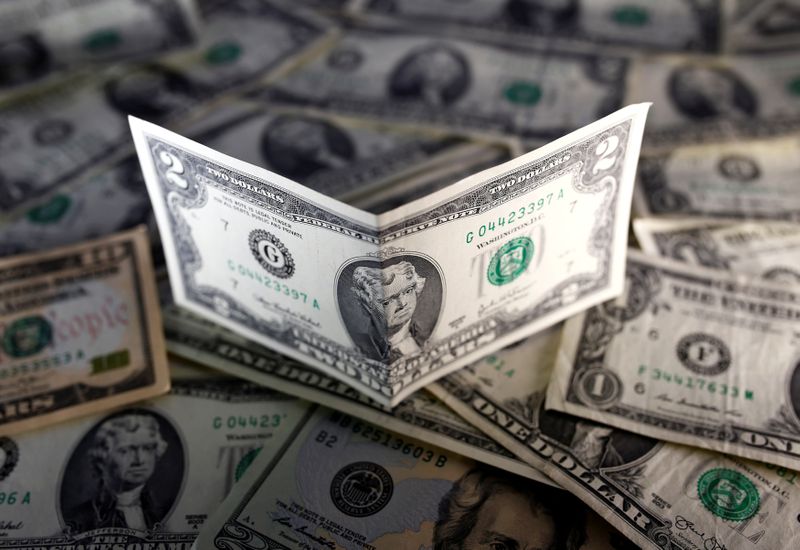By Administrator_India
The U.S. dollar vacillated below an 11-week high versus major peers on Thursday as traders attempted to navigate conflicting signals from Federal Reserve officials on the timing of a withdrawal of monetary stimulus.
The dollar index, which measures the greenback against six rivals, stood at 91.806 early in the Asian session after dipping to 91.509 on Wednesday. It was at 92.408 at the end of last week, the highest since April 9.
The U.S. currency got some support overnight as two Fed officials said that a period of high inflation in the United States could last longer than anticipated, a day after Fed Chair Jerome Powell played down rising price pressures.
Atlanta Fed President Raphael Bostic said with growth surging to an estimated 7% this year and inflation well above the Fed’s 2% target, he now expects interest rates will need to rise in late 2022.
Both Bostic and Fed Governor Michelle Bowman said that while they largely agree recent price increases will prove temporary, they also feel it may take longer than anticipated for them to fade.
The dollar index jumped as much as 2.1% last week after the Fed surprised markets on June 16 by saying that policymakers are forecasting two interest rate hikes in 2023.
But the index gave up about a third of those gains after Powell on Tuesday said that inflation is climbing due to a “perfect storm” as the economy reopens from the COVID-19 pandemic, and that those price pressures should ease on their own.
Six Fed officials are due to speak on Thursday, including New York Fed President John Williams, who on Tuesday said any conversation about when to adjust interest rates is still far off.
“The market has shifted back into price discovery mode, reflecting the Fed’s recent shift and the need to fine-tune the taper lift-off date,” Mark McCormick, the global head of foreign-exchange strategy at TD Securities, wrote in a client note.
“Good U.S. data will be good for the USD and bad for risk markets, owing to the impact on the tapering process. Accordingly, we still like USD dip-buying into the early parts of the summer.”
Producer price inflation data on Friday is this week’s U.S. economic focus, with consumer spending numbers also due that day, and the latest reading on jobless claims released later on Thursday.
The euro was little changed at $1.19295 on Thursday compared to the previous session, when it rose as high as $1.19700 for the first time in a week. It had dipped to the lowest since April 6 on Friday, at $1.18470.
The yen weakened as far as 111.11 per dollar for the first time in 15 months, and was last 0.1% weaker at 111.03.




